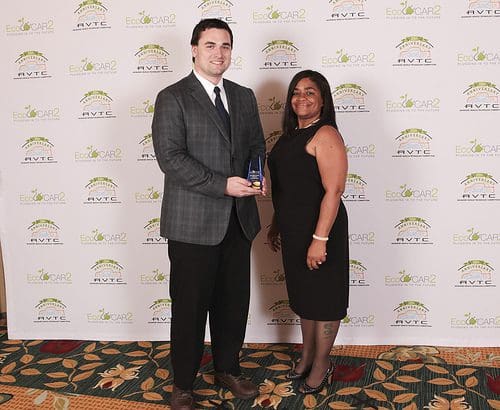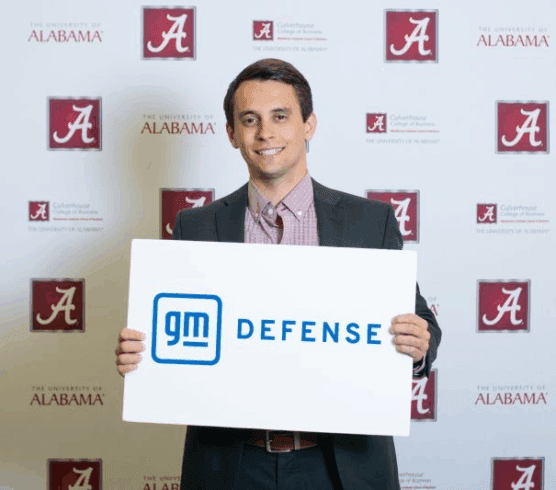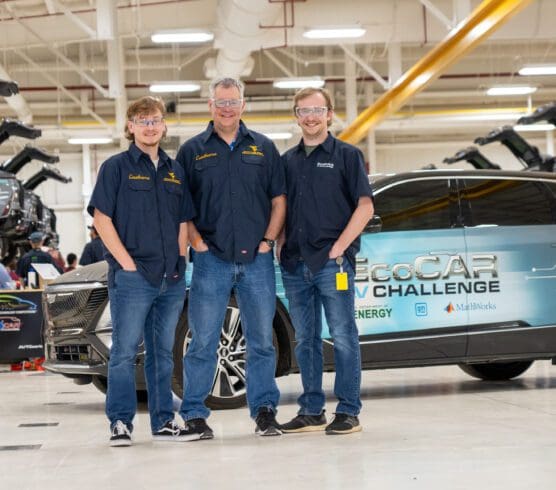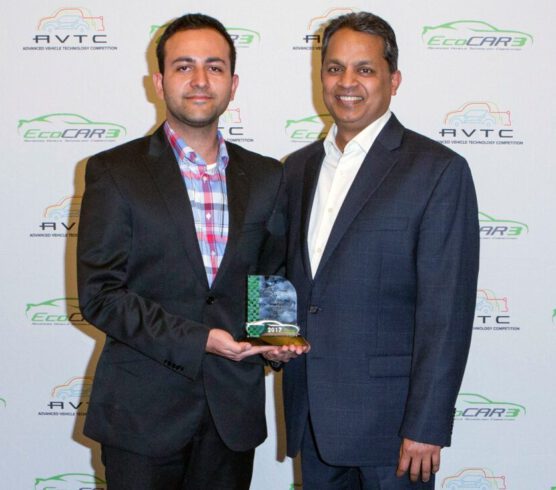Josh Wilke is a graduate of the University of Washington (UW) and Advanced Vehicle Technology Competitions (AVTC) student during EcoCAR 2. This is an interview about this experience with the team, advice for future students, and his role as an engineer in the real-world.
Q: What did you major in at UW?
A: Mechanical Engineering (Mechatronics Concentration)
Q: When did you graduate?
A: June 2013
Q: When did you know you wanted to be an engineer?
A: Probably since my dad gave me a toaster to take apart when it broke. Since I was young, I’ve always wanted to know how things work.
Q: What else were you involved in during your time at UW?
A: EcoCAR took up most of my time, but I still had hobbies like motorcycle riding and gaming. But I spent more time in the lab than at home.
Q: How did you get involved with EcoCAR at UW?
A: During transfer orientation, my advisor took me on a tour around the engineering building. We went through what was to be the EcoCAR lab, but at the time it was still the remains of an old classroom. Trevor Fayer and Trevor Crain, former team leaders for the UW EcoCAR team, were there and I talked with them about the project. It was a brand new program for the school, and I was excited to get in at the very beginning and be part of the core group that could shape the future.
Q: How long were you involved with EcoCAR 2?
A: I started in August of ’12, a month before classes started for fall. I continued with the team until July ’13 when I moved to Michigan and started my career.
Q: What positions did you hold with EcoCAR?
A: At first, I was a member of the mechanical team, but very early in the project, I was promoted to mechanical group leader.
Q: What the most valuable thing you learned from your time with EcoCAR 2?
A: Real-world engineering is much more difficult and fun than classes; classroom education is incomplete without hands-on experience. In homework, there’s one obvious right answer. In a complex project like EcoCAR, there can be many solutions to a problem, and the process of choosing between them is what separates the good from the great.
Q: What are three of your favorite experiences from your time at EcoCAR?
A: Overall my absolute favorite would be Year Two competition. The sense of excitement and urgency in the garage was just incredible, and I remember other teams helping out and us helping them too. It was friendly competition because we all wanted the same thing: working cars. Being there with other highly-motivated people from our team and giving our all every day (and often into the night) was exhausting but definitely worth every drop of sweat. And we were in Arizona, so there was plenty of sweat. It’s so hard to capture that experience, but I’d compare it to a final championship sports match.
Another memorable experience happened at the Winter Workshop in Boston. I was there with another mechanical team student, and we had a really tough design problem to solve with very limited time and resources. We sat down and powered through basic engineering principles to arrive at a completely new, elegant solution to the problem. It was great to work with people who were like-minded yet had different perspectives and we could bounce ideas around to make the most of all our strengths.
There were a lot of firsts that I remember: first engine start, first wheel spin, and first waiver complete.
Q: If you could do it over again, is there anything you would change about your EcoCAR experience?
A: I’d make it last longer ha! But seriously, I’d put more effort into recruiting. It’s difficult to explain why this program is so amazing, but I think the people who benefit the most from it can see it right away. It provides a lot of opportunities that you can’t get from other places.
Also, I think I’d learn a bit more about leadership. Motivating a group of volunteers to put a lot of time while also busy with work/class is a very difficult task! Our car ran, which says something, but I’m sure I stepped on some toes trying to direct people.
Q: What is your current job?
A: I’m a battery test engineer with General Motors in Michigan. I design, program, and run tests on next-generation batteries for electric vehicles.
Q: How did you get this job?
A: GM asked me to interview with them at the beginning of my senior year. Two hours after the interview, they called me back and said “We’d like you to work for us. Here’s the position and salary. When can you start?”
Q: How has what you learned at EcoCAR transferred to help you in your current position?
A: The ability to look at a problem and start to troubleshoot from many different angles is crucial to what I do. In EcoCAR, my part does not fit in this space, how can we fix that? Well, we can redesign the part, we can re-orient it in its location, we can change its location in the car, we can shift some other parts around it etc. It’s very helpful to have ideas for multiple solutions that can be narrowed down to a good choice.
Q: How has EcoCAR in general helped you with your new job?
A: For starters, it got me the job offer. But coming into GM with some knowledge of their design process, and some of the many acronyms they use is less daunting and scary than coming on as a completely new employee.
Q: How did EcoCAR help you specifically with networking?
A: There are social events with the sole purpose of meeting new people in a friendly environment where you all share a common interest. It’s great to know people in the industry that you’re passionate about. Definitely broadens your pool of resources. I’ve met and talked with everyone from technicians to chief engineers from multiple companies through EcoCAR competition. They know me by first name. That is a rare advantage.
Q: Where do you see yourself working in 10 years?
A: Ten years? I’m not sure, but either advancing my career within GM or maybe somewhere else in the auto industry. I do know that I’d like to continue broadening my skillset and experiencing different areas of engineering design. I like getting my hands dirty in nitty gritty design decisions, but still maintaining latitude to move between projects.
Q: If an engineering student today asked you for advice on the best way to prepare for a career in engineering, what advice would you give him or her?
A: Get real-world experience from something like EcoCAR, Formula SAE, etc. If you graduate with merely a diploma that says you can succeed in a classroom, that’s a hard sell to an employer. If you graduate with actual applicable skills that employers need, that’s real value.
The importance of this kind of program really can’t be overstated. These kind of broad, yet deep design projects bring out the best of students’ creativity, perseverance, and teamwork.




